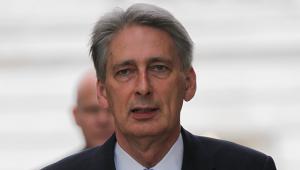In a report, Pressing the Reset Button, the foundation said the 23 November event would more resemble “a post-election emergency Budget”, than a normal Autumn Statement given the political upheaval following the referendum on EU membership.
It said that applying the average change in forecasts to the latest Office for Budget Responsibility projection from March 2016 implied that £84bn of additional borrowing would be needed to 2020-21.
Were this to happen, the £10bn surplus pencilled in for 2019-20 would be transformed into a £13bn deficit – breaking former chancellor George Osborne’s rule of closing the overall deficit by the end of this parliament.
Debt as a share of GDP would also rise in 2017-18 – breaking another fiscal rule by £10bn in that year, it said.
The ‘reset’ plan was welcome as Hammond would have to green light “very significant fresh spending cuts or tax rises” if he sought to retain Osborne’s fiscal rules, the think-tank said.
Hammond could either soften the deficit target by switching to a current budget balance in 2019-20, or delay the deficit target by planning for an overall surplus later than 2019-20.
The foundation thought the first was unlikely as it would require £9bn of extra spending cuts or tax rises, or else surplus would not be reached until 2023-24, which it called “much too late to be a credible fiscal target”.
Softening the deficit target would instead offer fiscal leeway of up to £17bn a year in 2019-20, which would allow the chancellor to reverse planned cuts to work allowances in Universal Credit, deliver the tax cuts from the Conservatives’ 2015 manifesto and secure a modest current budget surplus in 2019-20, the foundation concluded.
Its chief economist Matt Whittaker said: “Despite the long-term impact of Brexit remaining very uncertain at this stage, there is a strong consensus among economists that post-referendum uncertainty will lead to deterioration in the public finances, which were coming in below expectation even before the referendum.
“Our analysis shows that the chancellor may face a new £84bn borrowing black hole and the prospect of breaking the fiscal rules inherited from his predecessor.”
The chancellor was right to seek a ‘reset’ rather than impose either cuts or tax rises, he said.



















